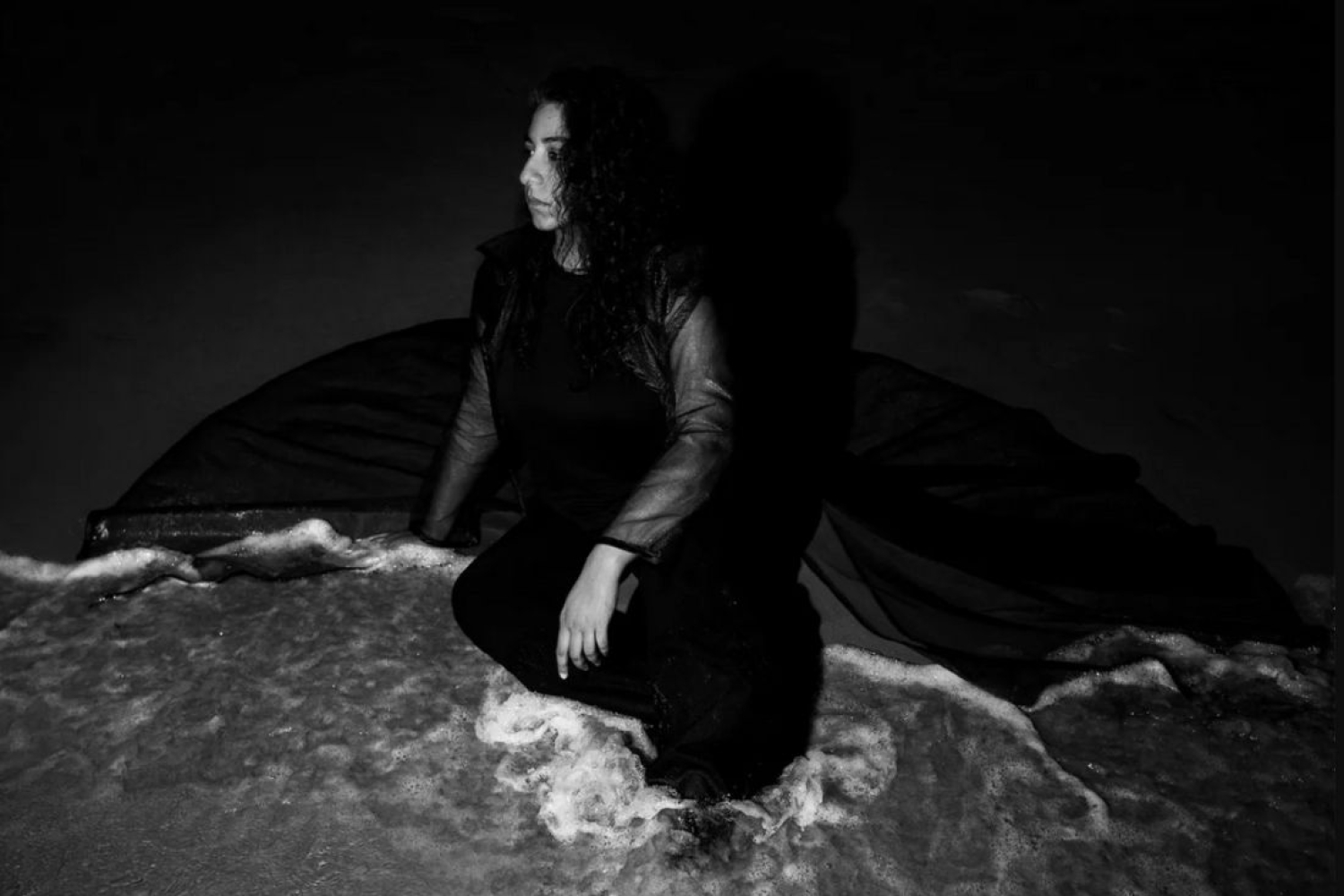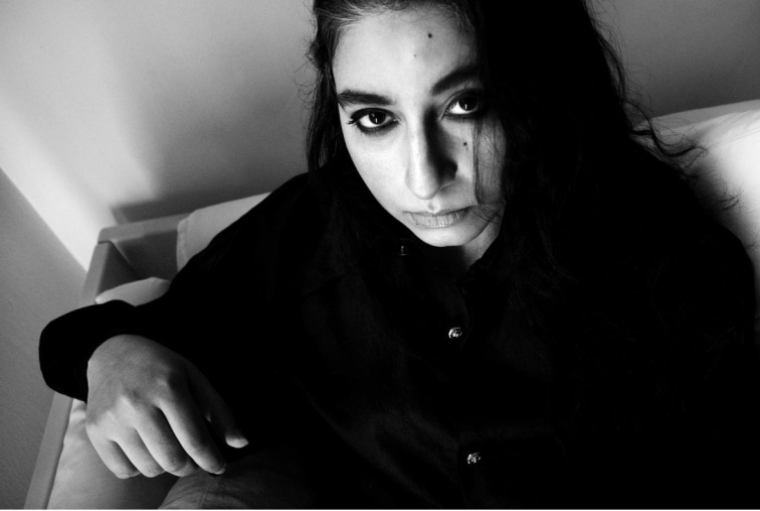

People remember Arooj Aftab’s voice. A voice as powerful as a thunderclap, as haunting as a soul wound, as cathartic as rain, as warm as a glowing ember. More than anything else, it is a ‘knowing’ voice. A voice that just knows what it means to long and grieve, that somehow turns pain into a prayer and a couplet into an image.
The Pakistani-American singer and composer, Arooj Aftab has had a rapid ascent recently after more than a decade of music-making; it was only in 2021 that she left her day job as an audio engineer to pursue music full-time and in this small span Arooj made it to Barack Obama’s playlist (for her track Mohabbat), released four studio albums, dropped multiple singles, toured incessantly, won the Grammy as the Best Global music performance and collaborated with heavyweights like Anoushka Shankar and Vijay Iyer.
Behind the trends, media, fans, fittings, emails, it is only about the music for Arooj and this music is intense, honest, propulsive, powerful. Someone who lost her younger brother but then somehow learnt to align her soul to the strums of the harp, dug deep into her pain, sang of God, of loss, mysticism, love and hope. She tells us, poignantly in her lyrics, ‘Ask for it, from your God. No one has left empty from their door, ask for it...Maang le bande tu, apne maula se tu, khaali gaya nai koi unke dar se.’ She spoke to us from her Brooklyn apartment, a few weeks before the release of her new album, Night Reign.
How would you describe the journey of finding your own voice as an artist?
A lot of times, the journey of an artist is to find their own particular voice and the way that they begin, is by learning and playing the music of people that they gravitate towards, in order to find their own way. But in some cases, it can also be listening. For me, deep listening has always been a thing. It’s been really important to me for my musical growth and for the opening of the mind. People like Begum Akhtar, Billy Holiday, Miles Davis, that you learn from by listening, they didn’t actually consent to teaching but you studied with them in a spiritual and cosmic way by listening to them very deeply and being a student of their craft. I call them my spiritual teachers. I always wanted to make something that sounds unique. That thought has always driven me and has been at the forefront of my music. I wanted to sound different. I wanted to sound like myself.
Would you say that the music that you’re creating is more for yourself then?
Selfishly, I ended up creating “new music” because it’s what I wanted to listen to anyway and it wasn’t out there. There was a gap in the music world where a true contemporary South Asian crossover music was missing. I feel like Vulture Prince finally broke the ceiling, opened that door, bridged that gap. So, it’s both the things. I feel like I am filling abig gap in the sound world.

How has it been dealing with fame? What has been your focus all along?
My new record is my fifth studio album. Sometimes artists take a long time to get to where they need to be. The journey is long and a lot of us keep our day jobs, a lot of us teach music. A lot of us are in other musical projects, are session musicians, jazz singers on cruise ships, like there’s always something ongoing. The dream was always to that one day your music will support you entirely, and you won’t need other jobs. That happened for me with the success of Vulture Prince. I feel I am really lucky and happy to be able to do music full time. What happened with me is very rare because the industry is not easy.
Talking about long journeys and dreams, some of the songs on Vulture Prince, were ten years in the making before they made it to the album. There are always hundreds of songs at different stages of their production lifwe and there’s just life that comes in the way, where the songs didn’t reach an album yet because I wasn’t able to do music full time. Even the new album has songs that I wrote when I was sixteen. Songs arrive at their own time and make it to the albums in their own pace.
Then it must be painful to step away from them. You recently bid goodbye to one of your most loved songs, Mohabbat. A song that reached your widest audience.
I feel the audience will never let me retire from that song. It’s going to be like Come Away with Me for Nora Jones or like With or Without You. But I did want to say that we all need to mentally prepare ourselves for the next thing because people get really obsessed. Having said that it is just a joy to play it every time. That song just doesn’t get old; every time we play it, it just feels amazing. It’s one of those special tunes.
This month marks the release of your new record. Is there one particular feeling or a theme that drives it?
Vulture Prince came out in 2021 and became a cultural moment. Since it was big for music that is rooted in a South Asian tradition to become part of the larger, modern and contemporary conversation. That hadn’t really happened before. Bollywood or Hindustani classical music were not part of bigger conversations, there was a gap in the understanding and also how the music was actually being presented. Vulture Prince bridged that.
Now there are so many contemporaries that are part of the conversation in Pitchfork, they’re not being seen as a strange thing. The album broke down a lot of doors, it came with a lot of homages to old classical pieces that are part of our heritage but presented in a modern contemporary form and it was an album that came to me out of grief. I lost my younger brother and it came to everybody else also out of the pandemic. Thousands of people died. So many elders passed away. It was awful. We were all mentally completely messed up. It was a really strange time and we were isolated and scared of social interaction. I started touring incessantly right after for the last three years and I no longer had my day job. So, things started to really come to shape for me at night.
I was playing back-to-back shows in different cities, in different hotel rooms at night, I was writing new songs when I was jet lagged and wide awake at night. I was inspired again, I felt I was healing and came to terms with everything that happened with me and all that happened in the shelter of nightfall, where things are not so obvious. You can see every detail in the daytime. You’re so exposed and vulnerable and you have stuff to do—like laundry, go to the dentist and go to your job and do press interviews. You’re doing business in the daytime but at night, you’re both softest and strongest in a way and that started to really become the theme of my new music. I started to realise that I’m thriving at night in all the ways possible. Night feels multifaceted to me. It is long but beautiful. Like, it can be so loud at a party but it can still be so quiet. I became obsessed with this idea. And that’s when I decided to write a bunch of songs around it which is now Night Reign. And it feels pretty good.
The same record has a song that you were inspired to write when you were all of 16 but how does fit in the context of the album and today’s time?
I wrote Bolo Na after a painful heartbreak when I was 16. Now, it has come into play as a protest song. If you look at what’s happening in the world right now, there’s a feeling that comes, ‘You don’t love us. You lied to us and I’m asking you tell me that you love me. I dare you because I know that nothing you say has truth in it.’ It’s all like a crazy patriarchal capitalist white supremacist program. They say it’s for our welfare but we know the agendas. It was then when I felt a song that was written years ago on love could actually work in this context as well. Love is also capitalism. It’s exactly the same model. It feels like we’re being screwed over in the same way.
How do you manage to create something that feels ethereal, but also modern?
My creative process feels brutally honest. It feels extremely natural. It is cliche to say it but I honestly just want to make music that’s authentic. This is almost radical to be doing this, but it also is so soft and gentle and easy to understand. It’s so inviting. The process of creating should invite you to be brave. It should make you see the mirror in a way. And that happens when you simplify things because there isn’t a lot to be said. There is a lot being said. On my album, the song Raat ki Rani is just the verse being repeated over and over. The story of the song doesn’t really go anywhere. While writing the song I kept asking my what happens next in the song? But the song doesn’t go anywhere. And I stopped pushing myself to write another verse. And that’s brave. Sometime when you go to a party, you think you like somebody but don’t even talk to them, you go home and it ends there. You continue to live your pathetic life. So, I let the process be as natural as possible and then play on my strengths. To write an amazing instrument section and making the chords super final in the process. That’s the formula for me. And then I think it works because then people don’t feel like it doesn’t have an end or it doesn’t have a middle even if it’s repetitive. And in many ways, that’s what minimalist music is.
Will you keep trying to develop a style or do you have interest in doing a dance album also?
I contradict myself a lot. I change patterns. But I feel like I just invented a genre, starting with Vulture Prince. I just finally opened this door that wasn’t opened before. But after two years of Vulture Prince, I feel the sound is different while being the same. It has changed a bit. It’s a little elevated. It shows growth. Next, we’ll see what happens.
What inspires you?
Mostly people and interactions. I’m really social; an extrovert. I love being around people, because people are crazy, funny and great. People inspire me. Everyone has a different type of magic. I love going to concerts, of course! But inspirations come from interactions that I have and nighttime, that’s where the inspiration actually hits.
Are you a night person?
I’m not an insomniac, but I do like to stay up at night and have a long night every now and then. I spend a lot of time by myself, sometimes out in the streets. That’s the only time that I get to speak to my family since they are in Pakistan. Even touring inspires me. You do the same thing every night, playing the show and then running away but the energy that you receive from the audience does something. I’m very emotionally sensitive. So even a small interaction with someone that meant nothing in my mind, I exaggerate it in order to make it something that could be the theme of something new. It never stops.
Words Hansika Lohani
Date 31.12.2024